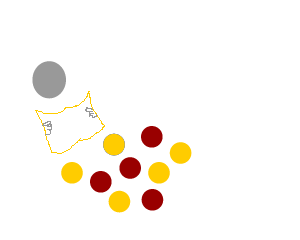
Website Helps
Literacy Narrative Assignment:
Desire gets confused on South Vermont. There were times when I wanted so much to be other than what I was, to walk through the magical gate of a television cottage. But strange blessing, we can never really free ourselves from the mood of early neighborhoods, from our first stories, from the original tales of hope and despair. There are basic truths about the vulnerability and power of coming to know, about the way the world invites and denies language. This is what lies at the base of education--to be tapped or sealed over or distorted, by others, by us.
--Mike Rose, Lives on the Boundary (240)
A literacy narrative tells a story about your personal engagement with reading and/or writing. Basically, you will pick an event from your past-either positive or negative-and connect that event to your current feelings about and/or abilities in reading and/or writing. For example, I am an avid reader which I attribute to the time I spent as a young child reading with my mother in our special read time called "Rock, Rock, Read" because we snuggled into a rocking chair.
For this assignment you will write an autobiographical narrative based on your literary experiences that communicates some insight about learning and/or teaching to the rest of the class. Not only will you write an engaging and memorable narrative, but you must also expand on the narrative's relevance (e.g., reading/writing in school or in the community). In conjunction with this assignment, we will study several published and student-written literacy narratives.
Trimbur tells us "[l]iteracy narratives offer rich descriptions of various settings in which writing occurs, the various ways people use writing, and the various social purposes writing can serve" (30). Make sure that you not only tell a good story about how you have been shaped as a communicator, but one that makes a point, one from which we can learn something about writing. It is those criteria--that your narrative tells how you have been shaped as a communicator and also makes a point and helps us learn something--that we will be using to respond to your first draft.
Please note that you do not have to pick either reading or writing. Often, our interactions with reading and writing are intertwined. Also, this essay does not have to be a rousing exposition about why writing and reading are the joy of your life if they are really the bane of your existence. Be honest. Tell a story.
You can accomplish this purpose in a variety of ways. You might, for example, tell the story of an especially important event later in your life that profoundly shaped you as the literate person you are today. Or you might describe an important educational or non-educational experience that influenced your literacy learning in some way. Or you might focus on a specific event in which writing or reading played a crucial role. Or you might do some variation of all these. The subject could also be interpreted to include other kinds of literacies--mathmatics, science, art, etc.--in contrast to, or in the context of, language literacy. The main object is to share the experience with your audience in as much detail and interesting storytelling as possible. I want the assignment to be flexible enough to accommodate a range of possible essays and to give you the freedom to explore a form and structure that seem most suitable to you as you try to present your literate self. So experiment, if you're so inclined. But keep in mind the purpose of the assignment as well as your audience.
Paper
formatting helps
First
page sample page in MLA
Length: 4-6 pages
Style: MLA
Assignment Objectives:
* Students will understand the ways that purpose, process, subject matter, form, style, tone, and diction can be shaped to address a particular audience in a specific situation.
* Students will generate good writing using specific methods of inventing and elaborating ideas, for arranging these ideas to achieve a specific rhetorical purpose, for producing good style, for revising, and for editing.
* Students will demonstrate their understanding of ethos (the appeal to the credibility of the speaker or writer)by effectively utilizing ethical appeals in their essays.
* Students will demonstrate their understanding of pathos (the appeal to emotion) by effectively utilizing pathetic appeals in their essays.
* Students will write effective introductions
that employ a blend of ethical and pathetic appeals to draw the reader
into their narratives.